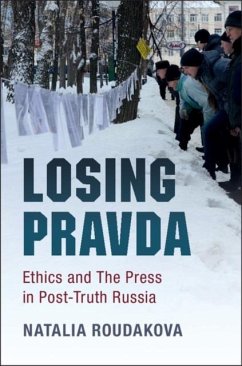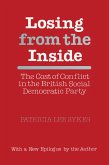What happens when journalism is made superfluous? Combining ethnography, media analysis, moral and political theory this book examines the unravelling of professional journalism in Russia over the past twenty-five years, and its effects on society. It argues that, contrary to widespread assumptions, late Soviet-era journalists shared a cultural contract with their audiences, which ensured that their work was guided by a truth-telling ethic. Post-communist economic and political upheaval led not so much to greater press freedom as to the de-professionalization of journalism, as journalists found themselves having to monetize their truth-seeking skills. This has culminated in a perception of journalists as political prostitutes, or members of the 'second oldest profession', as they are commonly termed in Russia. Roudakova argues that this cultural shift has fundamentally eroded the value of truth-seeking and telling in Russian society.
Dieser Download kann aus rechtlichen Gründen nur mit Rechnungsadresse in A, B, BG, CY, CZ, D, DK, EW, E, FIN, F, GR, HR, H, IRL, I, LT, L, LR, M, NL, PL, P, R, S, SLO, SK ausgeliefert werden.









